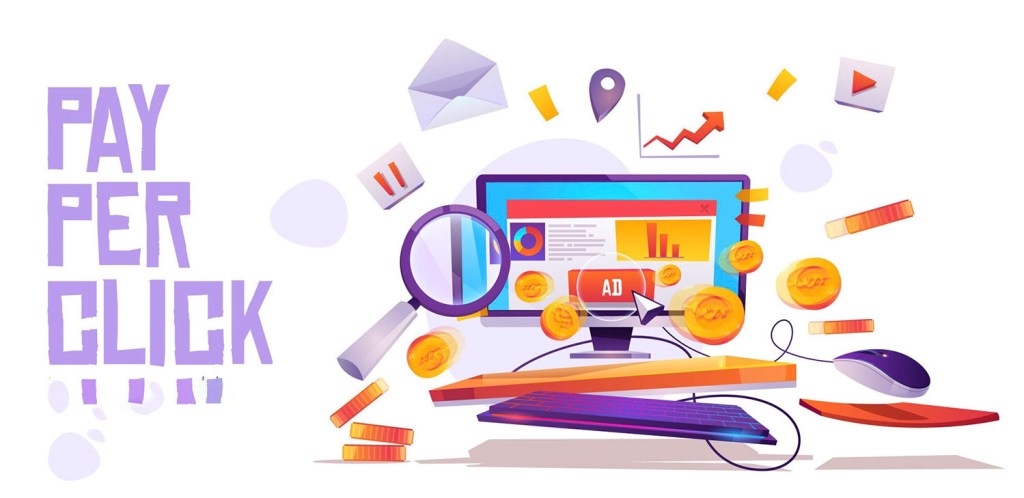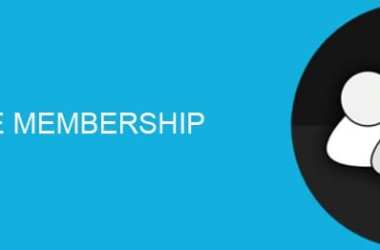Updated: Feb 08, 2024 By: Dessign Team

In the digital marketing world, you've probably heard the term PPC thrown around. But what exactly is it? PPC, or pay-per-click, is an online advertising model that's become a game-changer in the industry.
Advertisers pay a fee each time one of their ads is clicked. Essentially, it's a way of buying visits to your site, rather than attempting to “earn” those visits organically. It's a quick route to increasing visibility and driving traffic to your website.
Understanding PPC can be the key to unlocking your business's online potential. Whether you're a small start-up or a large corporation, mastering PPC can give you a significant edge over your competitors. So let's dive into the world of PPC and discover how it can transform your digital marketing strategy.
What is PPC?
You've likely come across these three little letters on several occasions: PPC. But what exactly is it? Well, PPC stands for Pay-Per-Click. It's a type of internet marketing and an advertising model in which advertisers pay a fee each time one of their online ads is clicked.
Essentially, it's a way for businesses to buy visits to their site versus earning them organically. It allows advertisers to bid for ad placement on a search engine's sponsored links.
Stepping into the vast world of PPC can seem daunting but understanding its function and potential is vital. The goal is simple: get as many clicks as possible while keeping costs down.
With PPC, you're essentially buying your way to the top of search engine results for keywords relating to your business. From the moment the ad is online and visible, every time someone clicks, it redirects them to your website – and you pay the search engine company a small fee.
But what makes PPC impressive is if the campaign is working correctly, the visit to your website should be worth more than what you pay for it. For example, if you pay $2 for a click but the resulting client's purchase from your website equals $200, you've made a significant profit.
This strategic approach allows for instant visibility and gives businesses a chance to outshine competitors in search engine results. Let's take a look at some figures:
| Item | PPC Ads |
|---|---|
| Reach | Immediate visibility |
| Cost | Pay per click |
| Profit potential | High when well-managed |
In the grand picture, comprehending PPC's dynamics can deeply impact an e-commerce business's bottom line. Its versatility allows for customization and targeting that's hard to match with other advertising models. As for its potential, well, it's as grand as the World Wide Web itself.
How Does PPC Work?
PPC is made up of three core components: keywords, ads, and landing pages. Here's how they work together:
- Keywords: These are the search terms that trigger your ads. They're what people type into search engines when they're looking for something. As an advertiser, you choose the keywords you want to target. You think about what your potential customers might search for and you bid on these keywords.
- Ads: These are the small pieces of content that show up in search results. They're designed to attract attention and get people to click. You have to make your ads interesting and relevant enough to stand out. Remember: each time someone clicks your ad, you pay.
- Landing pages: When someone clicks your ad, they're directed to your landing page. This is your chance to convert that visitor into a customer. The trick to a successful landing page is relevancy and simplicity: it should be exactly what the visitor was expecting when they clicked your ad, and it should make it easy for them to take action.
When you master these elements, you'll find that your PPC campaigns can become a major source of traffic and revenue for your business. But bear in mind, running a successful PPC campaign requires extensive ongoing analysis, and constant tweaking and refining based on the results you're seeing.
In the following table, I have summarized the main components of PPC and their role in a PPC Campaign:
| Component | Role |
|---|---|
| Keywords | Trigger your ads based on what people search for. |
| Ads | Attract attention and encourage people to click. |
| Landing pages | Convert visitors into customers. |
Remember, the goal of a PPC campaign is not just getting clicks, it's about turning those clicks into customers. As you continue to optimize your campaigns, you'll find that your Cost Per Click goes down and your Conversions go up – that's the real power of PPC.
The Benefits of PPC
PPC offers a range of benefits to businesses willing to invest their time and money. It's a robust marketing tool that, when executed well, can bring substantial returns and elevate a business' visibility online.
Return on Investment (ROI) is one of the key benefits of running PPC campaigns. If I manage the PPC campaign effectively, every dollar spent on clicks essentially becomes an investment, producing greater returns in the form of increased site visits and conversions. The end result? More sales. More ROI means more cash flow, bolstering the bottom line and generating growth.
Let's look at these numbers in detail:
| ROI | Profit |
|---|---|
| 200% | $2 return per $1 spent |
| 300% | $3 return per $1 spent |
| 400% | $4 return per $1 spent |
PPC also provides speed and agility in marketing campaigns. Unlike traditional methods, PPC advertising brings in instant traffic, creating immediate visibility for my brand. This turnaround speed is a significant advantage in a highly competitive digital world where time is money.
Targeting is another powerful PPC feature. It allows me to pinpoint my audience based on multiple factors: keywords, location, language, time of day, and more. This level of specificity is vital, making each ad more relevant to the target audience and increasing the chances of conversion.
PPC ads' measurability and tweakability are game changers. Real-time data on ad performance allows me to adjust and optimize my campaign for better results continually. The ability to see what's working and what's not in real time enables me to make the most of my investment.
In a nutshell, PPC makes budgeting, speed, targeting, and adjustability possible. The goal remains the same: turning clicks into customers, all the while increasing ROI and reducing cost per click. Yet, managing a PPC campaign effectively is a complex process, and the need for continuous analysis, tweaking, and refining can't be overstated. PPC advertising is a powerhouse in the hands of those who know how to wield it. Now, let's move on to understanding how to set an effective PPC strategy and make the most out of it.
PPC vs Organic Search: What's the Difference?
We've already learned what PPC is and its benefits. But how does it compare to organic search? That's what we'll delve into now.
First off, let's talk about organic search. It's where all the free, non-paid entries on the search engine results page (SERP) are. These rankings are determined by the search engine’s algorithm, and their position depends on a variety of factors such as the content’s relevance to the search query, the number of quality backlinks the content has, the structure of the webpage, and more. To improve organic ranking, one needs to employ a strategic approach often known as Search Engine Optimization or SEO.
Many businesses, especially smaller ones, rely solely on organic traffic as it's free. However, a downside is that it takes time and a fair bit of know-how to improve organic search rankings.
On the other hand, we have PPC. As discussed earlier, PPC is a model of digital advertising where advertisers pay a fee each time their ad is clicked, and these are the paid entries you see on the SERP. A major upside to PPC is that it's fast. Businesses can set up a campaign within a day and start seeing immediate results.
But you might wonder, “Why should I pay for clicks when I can get them for free with organic search?” Well, while organic SEO is undoubtedly a crucial strategy, PPC can boost visibility significantly, particularly for new businesses or websites that are yet to establish their presence.
I want you to have a look at the following data demonstrating the average click-through rates (CTR) of PPC and organic search:
| PPC | Organic Search | |
|---|---|---|
| CTR | 3.17% | 1.53% |
PPC ads generally generate a higher CTR, leading to more potential customers visiting your site.
The unique advantage of PPC over organic search is its targeting feature. With PPC, you can target specific demographics, locations, and even the time of day your ads appear. It also provides quick, measurable results, which is a big plus for any marketing campaign.
In the end, PPC and organic search are not adversaries but comrades with unique strengths. A blend of both can create a robust, synergistic marketing strategy. But for now, let's focus on PPC and unearth more of its benefits.
How to Set Up a PPC Campaign
First thing's first in setting up an effective PPC campaign – Define your goals. Are you trying to increase sales, leads, sign-ups or just drive quality traffic to your site? Knowing what you want to achieve will guide your decision-making throughout the entire campaign set-up process.
Next, choose the right platform that aligns with your objectives. Google Ads and Bing Ads are popular choices, with Google offering greater visibility due to its higher user base.
Keyword research comes after selecting your platform. It's an integral part of PPC strategy, as the right keywords will attract potential customers actively searching for what you offer. Tools like Google's Keyword Planner can give you insights into commonly searched words and phrases, competition levels, and bid estimates.
Once you've nailed the keywords, create compelling ads. Remember, you're aiming to engage customers and drive conversions. Your ads need to attract attention, spark interest and encourage click-through. High-quality ads not only increase your click-through rate but also improve your Quality Score which can lead to lower costs and better positioning.
Designing and optimizing landing pages comes next. These need to match the keyword and ad content to provide a seamless customer experience that aligns with searcher's intent. An optimized landing page improves relevancy and can significantly increase conversion rates.
Since everyone's experience won't be a smooth ride, installing tracking tools such as Google Analytics is crucial. It's the best way to monitor how your PPC campaigns perform and how they can be improved. It's all about fine-tuning the elements that work and amending the ones that don't.
Lastly, plan your budget wisely. The general rule of thumb is if your campaign is profitable, you should be willing to invest more money into it.
Whilst this process may seem overwhelming at first, with time, practice, and continuous learning it'll become second nature. Remember, PPC campaigns aren't set-it-and-forget-it operations. They require ongoing analysis, testing, and optimization for better results. You got to play it smart and use the data to your advantage.
Conclusion
So we've journeyed through the world of PPC, uncovering its potential as a powerful digital marketing tool. We've seen how it's more than just paying for clicks – it's about strategic ad placement, engaging ads, and effective landing pages. It's about turning those clicks into customers and maximizing ROI. Remember, setting up a PPC campaign isn't a one-time task. It's a continuous process that requires regular analysis, testing, and tweaking. But with the right approach, you can harness the power of PPC to drive traffic, boost conversions, and grow your business. So don't wait – dive into PPC and start reaping the benefits today!
What is PPC in digital marketing?
PPC, or pay-per-click, is an advertising model where advertisers pay a fee each time their online ad is clicked. It enables businesses to buy visits to their site rather than organically earning those visits.
What is the goal of a PPC campaign?
The primary goal of a PPC campaign is to turn clicks into customers. This involves maximizing the number of clicks to your ads while minimizing cost and increasing conversions.
What are the core components of a PPC campaign?
A PPC campaign has three core components: keywords, ads, and landing pages. Keywords trigger your ads, which capture attention, and landing pages convert visitors into customers.
How can a PPC campaign be successful?
A successful PPC campaign requires ongoing analysis, testing, and tweaking. Choosing the right platform, defining goals, conducting keyword research, and creating compelling ads are crucial steps. However, continuous optimization is key to better results.
How to set up a PPC campaign?
Setting up a PPC campaign involves defining goals, choosing the right platform, conducting keyword research, creating compelling ads, designing optimized landing pages, and planning the budget. It also involves installing tracking tools for analysis and optimization.
Why is ongoing analysis important in a PPC campaign?
Ongoing analysis in a PPC campaign helps identify what's working and what's not. It enables advertisers to tweak ads and landing pages for better results, reduce cost per click, and increase conversions.
What is the power of PPC in digital marketing?
PPC ads offer instant visibility and profit potential. They can decrease the cost per click and increase conversions, making them an effective tool in digital marketing.



